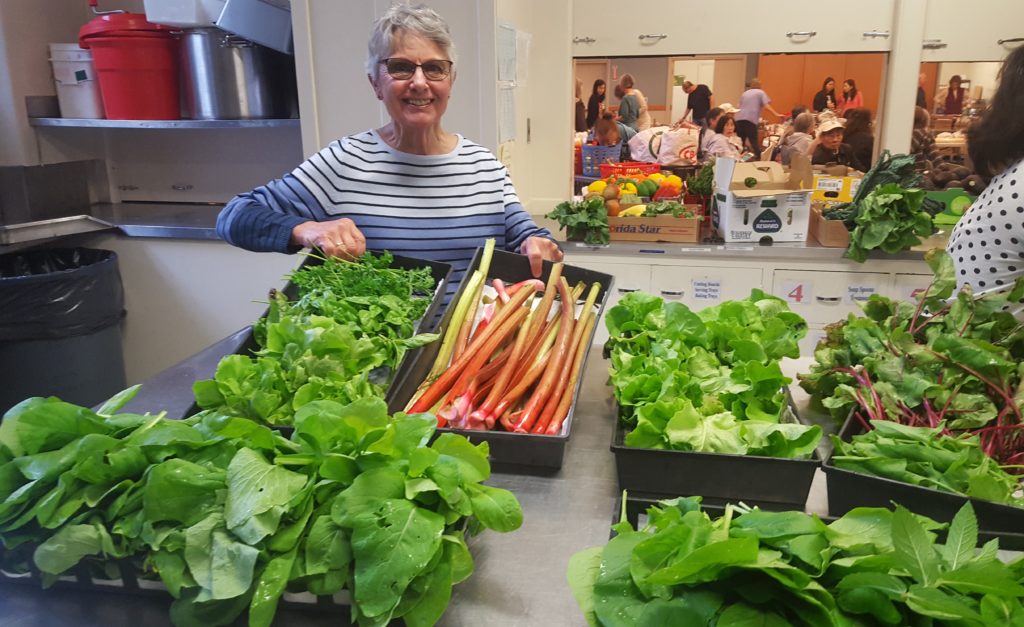
Donnalee, who often volunteers at the Garden on Tuesday afternoons was was waiting for our delivery at the Food Pantry.

Donnalee, who often volunteers at the Garden on Tuesday afternoons was was waiting for our delivery at the Food Pantry.
Volunteers: a Lexington Brownie troop
Weather: Sunny, dry, 60s to 70s
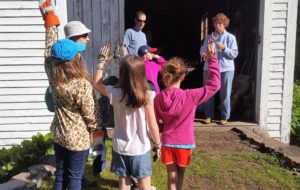 We were delighted to be joined this morning by an enthusiastic troop of about 8 Brownie scouts and parents helping at the Garden this morning. For some, this was a repeat volunteer opportunity. For others, this was the first time they were learning about the Garden. When Carla asked who wanted to do some of the harvesting, all hands shot up in the air.
We were delighted to be joined this morning by an enthusiastic troop of about 8 Brownie scouts and parents helping at the Garden this morning. For some, this was a repeat volunteer opportunity. For others, this was the first time they were learning about the Garden. When Carla asked who wanted to do some of the harvesting, all hands shot up in the air.
For more photos of the day and this year’s progress, please visit our Photo Gallery!
Volunteers from: Chinese Bible Church, Pilgrim, First Parish, Hancock, First Baptist and the Lexington Catholic Community
Weather: sunny and in the 60s
Tasks: Harvest asparagus, rhubarb, mint and chives; deliver our first harvest to the Lexington Food Pantry; water seedlings; and weed
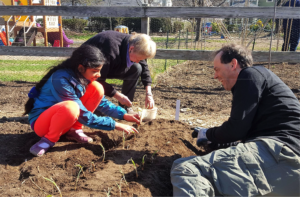 Volunteers from Follen, Hancock, and the Lexington community
Volunteers from Follen, Hancock, and the Lexington community
Weather: Sunny and 50s
Find the first vegetable already pushing up through the soil ( hint: it’s asparagus as seen to the right )
Construct bean and pea pole structures in the small garden, Plant onions, peas and some Chinese pea pods, Spread more manure, Reinforce the fence, Clean out berry patch canes, Water for the bees.
For more photos of this year’s progress, please visit our Photo Gallery!
A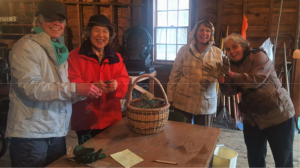 fter a number of weather cancellations, we finally got to work on Tuesday, April 4th and Saturday, April 8th. Volunteers emptied compost bins,
fter a number of weather cancellations, we finally got to work on Tuesday, April 4th and Saturday, April 8th. Volunteers emptied compost bins, 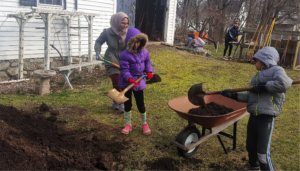 cleaned tools, pumped air into the wagon wheels, shoveled compost and cleaned up the barn. Asparagus is already on the way! For more photos of the garden and volunteers, please visit our Photo Gallery!
cleaned tools, pumped air into the wagon wheels, shoveled compost and cleaned up the barn. Asparagus is already on the way! For more photos of the garden and volunteers, please visit our Photo Gallery!